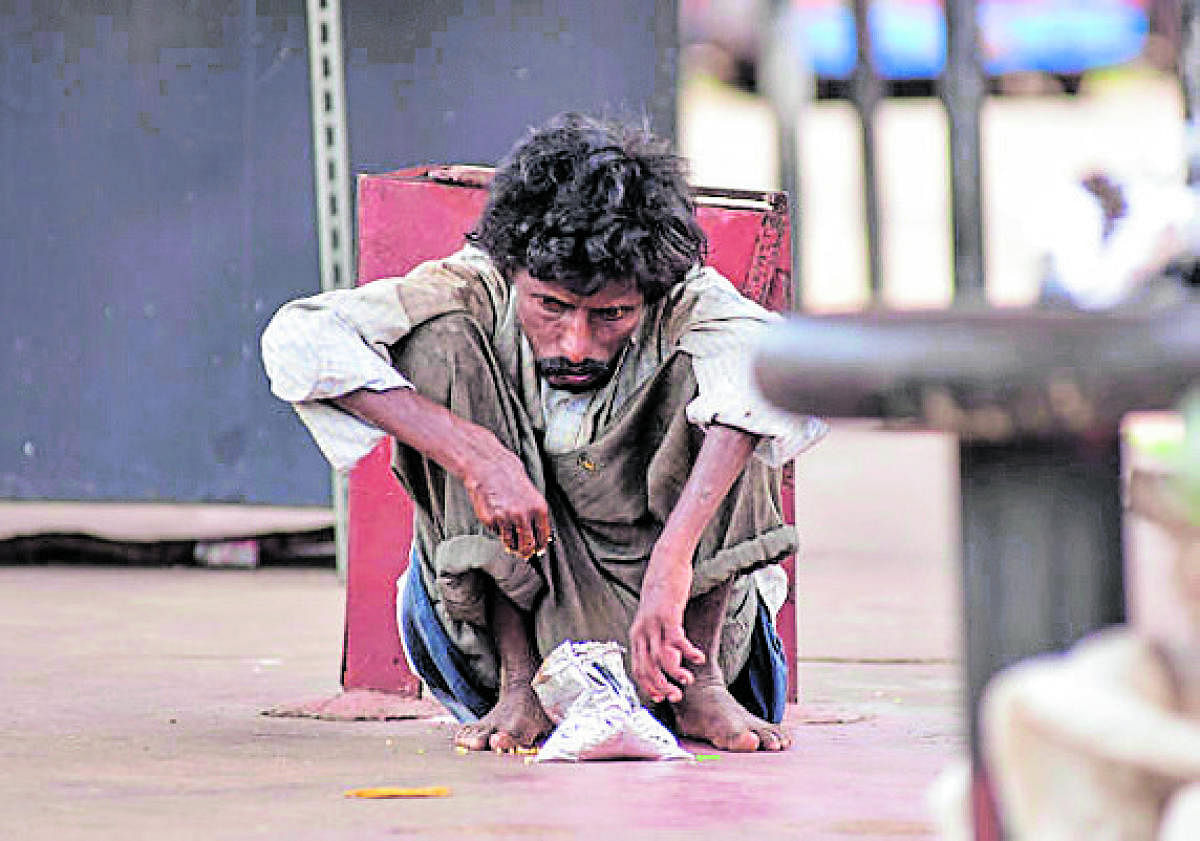
The 14 homeless shelters of Bengaluru are working towards accommodating as many people as possible, but none are equipped to house people with disabilities.
K A Dayananda, special commissioner, welfare, says, “We have been asked to set up 86 homeless shelters and we are on the lookout for places. Once we get them, we will allocate a few homes for the physically challenged and for transgender people.”
BBMP officials go around the city to pick up the sick and destitute and assign them to the nearest homeless shelters. But the differently abled and the transgender homeless are often left behind on the streets.
Only the Goods Shed Road shelter has a ramp to help the disabled get in, but that is about it.
“Since the physically challenged homeless people will need ramps, grab bars, wheelchairs, special toilets and beds, the present homeless shelters are not able to accommodate them,” says Dayananda.
He says, however, that people with disabilities are not turned away. “They can come to the shelters and stay there for as long as they want,” he says.
Scheme specs
The night shelters of Bengaluru are run under the National Urban Livelihood Mission Scheme.
“The scheme specifies separate homes for women, women with children, transgender people, and the differently abled, but the reality is different,” says Sampath T D, convener of Impact India Consortium, a non-governmental organsisation.
The BBMP is not processing tenders approved three months ago and it shows how uninterested they are in caring for the disabled, he says.
People with disabilities are struggling to survive the heavy showers and chilly nights. Many get bullied by others on the streets, he says.
“Earlier, when we found disabled homeless people, we used to allocate them to private NGOs. But now, since they are also full, we don’t know what to do,” he says.
It is difficult for the disabled to find jobs and so some of them end up on the streets, says Mahantesh G Kivadasannavar, founder and managing trustee, Samarthanam, a 25-year-old organisation that works with people with disability.
“A dedicated place would help as it will have a special caretaker trained to cater to the needs of the differently abled,” he says.
Disabled people are sleeping in bus stands, parks, temples and footpaths, he observes. “If the government is willing to work with us, we would love to set up shelters for them,” he says.